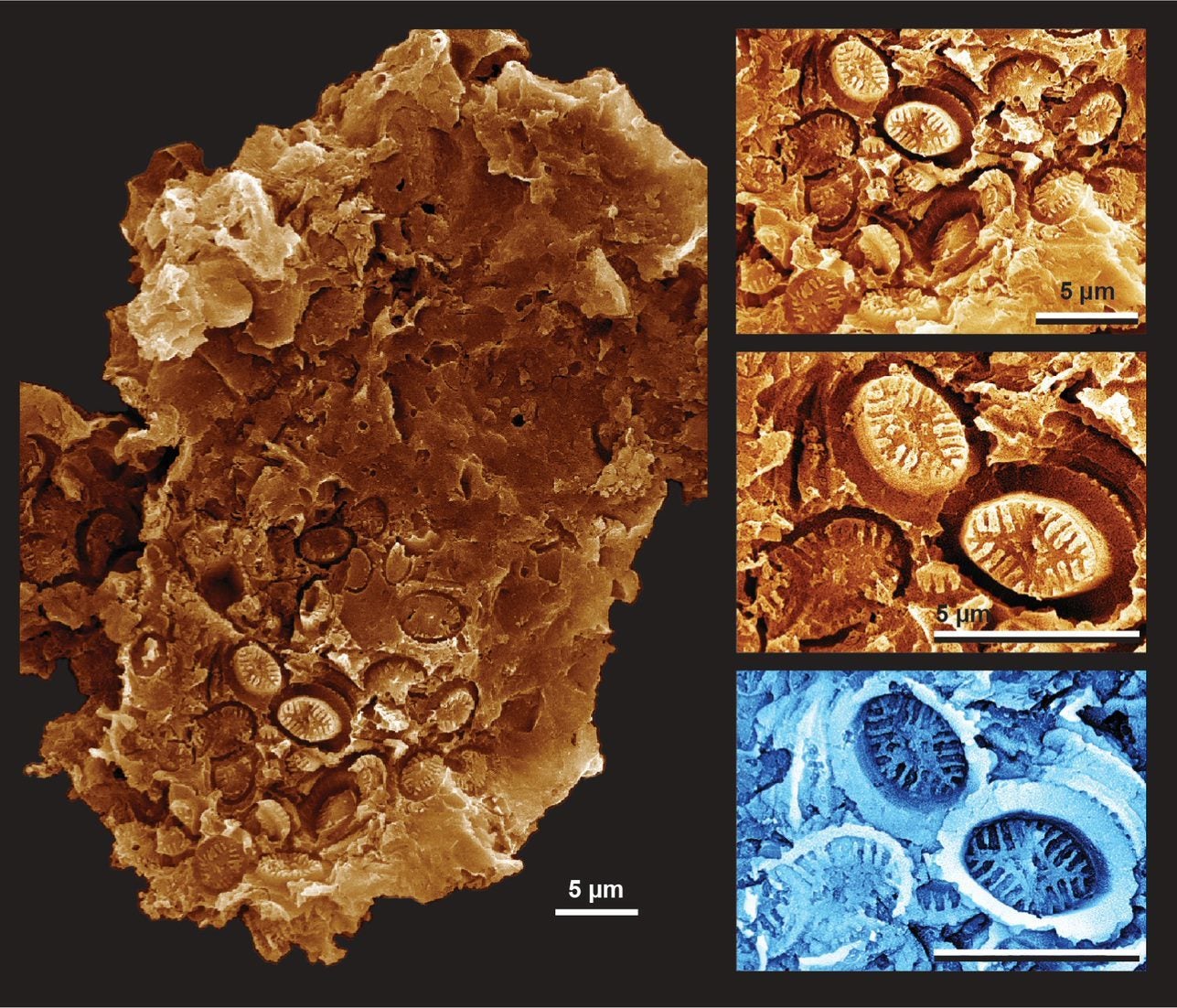Scientists unearth ‘ghostly’ remains of plankton dating back more than 180 million years
Their incredible resilience to extreme shifts in temperature has altered understanding of how plankton in oceans are affected by periods of warming, reports Emily Atkinson

Scientists have discovered the “ghostly” remains of plankton that were entombed on the seafloor during a period of rapid global warming more than 180 million years ago.
The international team of scientists who unearthered the organisms said their incredible resilience to extreme shifts in temperature has altered understanding of how plankton in the oceans are affected by periods of warming.
The fossils are microscopic imprints, or “ghosts”, of single-celled plants called coccolithophores. The species is derived from the Mesozoic Era - an age characterised by the dominance of dinosaurs.
The study’s co-author Dr Sam Slater, of the Swedish Museum of Natural History, said: “The discovery of these beautiful ghost fossils was completely unexpected.
“We initially found them preserved on the surfaces of fossilised pollen, and it quickly became apparent that they were abundant during intervals where normal coccolithophore fossils were rare or absent – this was a total surprise.”
Though small, coccolithophores are hugely abundant and are visible from space as cloud-like blooms.
When the sea organisms die, their calcareous exoskeletons sink to the seafloor, accumulating in vast numbers to form rocks such as chalk.
Prof Paul Bown, co-author from University College London, said: “The preservation of these ghost nannofossils is truly remarkable.
“The ghost fossils are extremely small - their length is approximately five thousandths of a millimetre, 15 times narrower than the width of a human hair.
“But the detail of the original plates is still perfectly visible, pressed into the surfaces of ancient organic matter, even though the plates themselves have dissolved away.”
The ghost nanofossils, entombed in the wake of an interval of rapid global warming in the Early Jurassic period, were discovered by researchers in the UK, Germany, Japan and New Zealand.
The Toarcian Oceanic Anoxic Event (T-OAE) - which occurred some 183 million years ago - was caused by an increase in CO2-levels in the atmosphere from massive volcanism in the southern hemisphere.
Specimens deriving from two similar global warming events in the Cretaceous from Sweden and Italy, which occurred 120 million and 94 million years ago, were also discovered by the researchers.
The findings suggests coccolithophores were far more resilient to past climate change than was previously thought.
The ghost fossils formed while the sediments at the seafloor were being buried and turned into rock. As more mud was gradually deposited on top, the resulting pressure squashed the coccolith plates and other organic remains together. The hard coccoliths were pressed into the surfaces of pollen, spores and other soft organic matter.
Later, acidic waters within spaces in the rock dissolved away the coccoliths, leaving behind just their impressions.
Prof Vivi Vajda, of the Swedish Museum of Natural History, said: “Normally, palaeontologists only search for the fossil coccoliths themselves, and if they don’t find any then they often assume that these ancient plankton communities collapsed.
“These ghost fossils show us that sometimes the fossil record plays tricks on us and there are other ways that these calcareous nannoplankton may be preserved, which need to be taken into account when trying to understand responses to past climate change.”
Coccolithophores are intrinsic to contemporary life - providing much of the oxygen we breathe, supporting marine food webs, and locking carbon away in seafloor sediments.
They surround their cells with hard calcareous plates, called coccoliths, and these are what normally fossilise in rocks.
Co-author Prof Silvia Danise, of the University of Florence, said: “Ghost nannofossils are likely common in the fossil record, but they have been overlooked due to their tiny size and cryptic mode of preservation.
“We think this peculiar type of fossilisation will be useful in the future, particularly when studying geological intervals where the original coccoliths are missing from the fossil record.”
Declines in abundance have been documented from multiple past global warming events, suggesting these plankton were severely affected by climate change and ocean acidification.
Co author Prof Richard Twitchett, of London’s Natural History Museum, said: “The ghost fossils show nannoplankton were abundant, diverse and thriving during past warming events in the Jurassic and Cretaceous, where previous records have assumed that plankton collapsed due to ocean acidification.
“These fossils are rewriting our understanding of how the calcareous nannoplankton respond to warming events.”
Warming waters affected the growth and skeletal structure of ancient algae. The findings in Science give clues to how they will adapt in future.
Dr Slater said: “Our study shows that algal plankton were abundant during these past warming events and contributed to the expansion of marine dead zones, where seafloor oxygen-levels were too low for most species to survive.
“These conditions, with plankton blooms and dead zones, may become more widespread across our globally warming oceans.”






Join our commenting forum
Join thought-provoking conversations, follow other Independent readers and see their replies
Comments